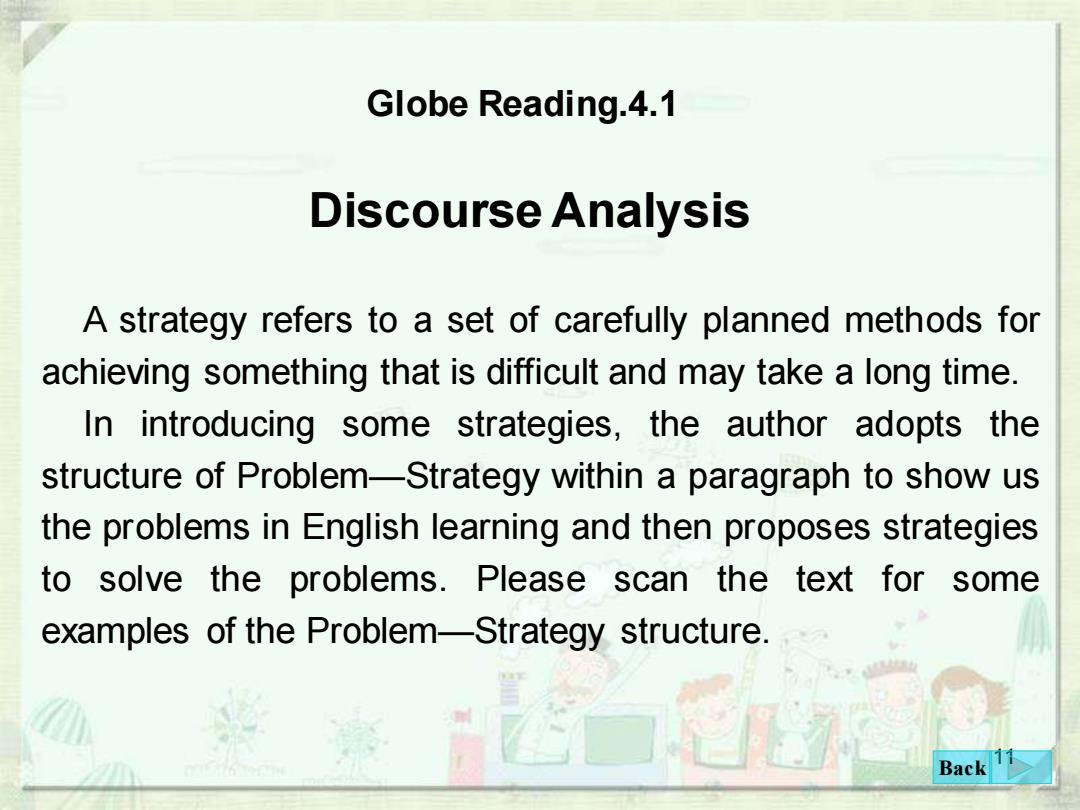
Globe Reading.4.1 Discourse Analysis A strategy refers to a set of carefully planned methods for achieving something that is difficult and may take a long time. In introducing some strategies,the author adopts the structure of Problem-Strategy within a paragraph to show us the problems in English learning and then proposes strategies to solve the problems.Please scan the text for some examples of the Problem-Strategy structure. Back
11 Globe Reading.4.1 Discourse Analysis A strategy refers to a set of carefully planned methods for achieving something that is difficult and may take a long time. In introducing some strategies, the author adopts the structure of Problem—Strategy within a paragraph to show us the problems in English learning and then proposes strategies to solve the problems. Please scan the text for some examples of the Problem—Strategy structure. Back
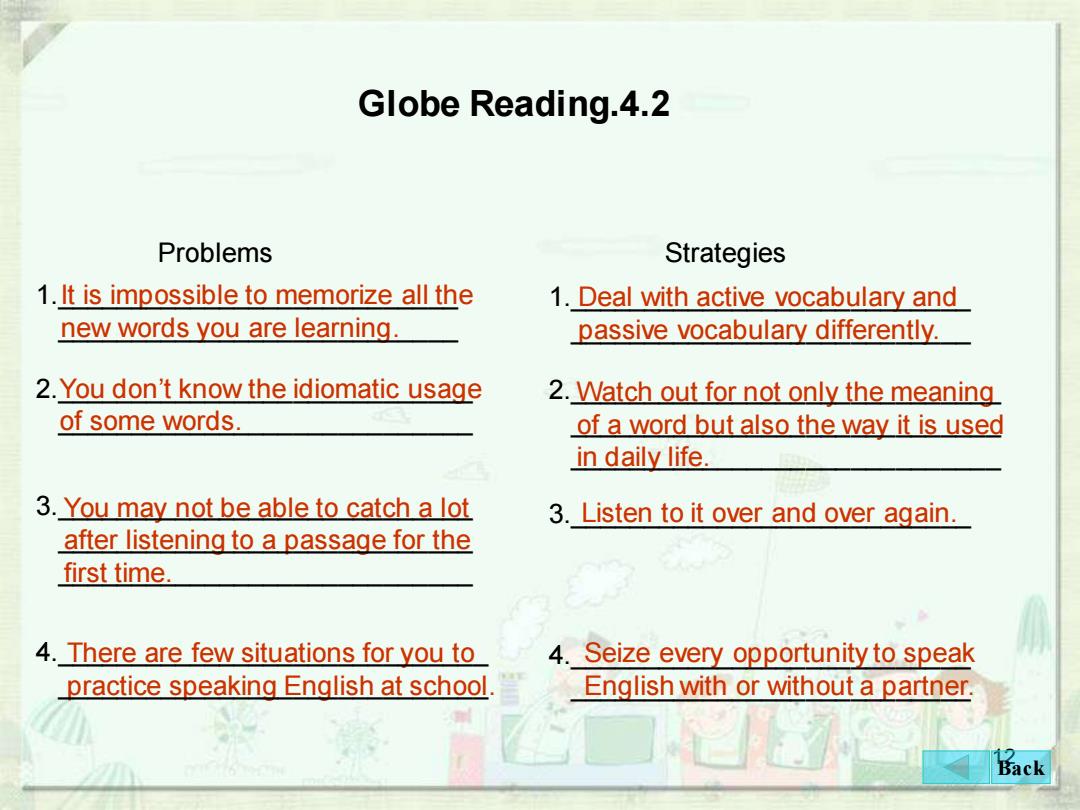
Globe Reading.4.2 Problems Strategies 1.It is impossible to memorize all the 1.Deal with active vocabulary and new words you are learning. passive vocabulary differently. 2.You don't know the idiomatic usage 2.Watch out for not only the meaning of some words of a word but also the way it is used in daily life 3.You may not be able to catch a lot 3.Listen to it over and over again. after listening to a passage for the first time. 4.There are few situations for you to 4.Seize every opportunity to speak practice speaking English at school English with or without a partner ack
12 You don’t know the idiomatic usage of some words. 2.____________________________ ____________________________ Globe Reading.4.2 Problems Strategies It is impossible to memorize all the new words you are learning. 1.___________________________ ___________________________ Deal with active vocabulary and passive vocabulary differently. 1.___________________________ ___________________________ Watch out for not only the meaning of a word but also the way it is used in daily life. 2._____________________________ _____________________________ _____________________________ You may not be able to catch a lot after listening to a passage for the first time. 3.____________________________ ____________________________ ____________________________ 3.___________________________ Listen to it over and over again. There are few situations for you to practice speaking English at school. 4._____________________________ _____________________________ Seize every opportunity to speak English with or without a partner. 4.___________________________ ___________________________ Back
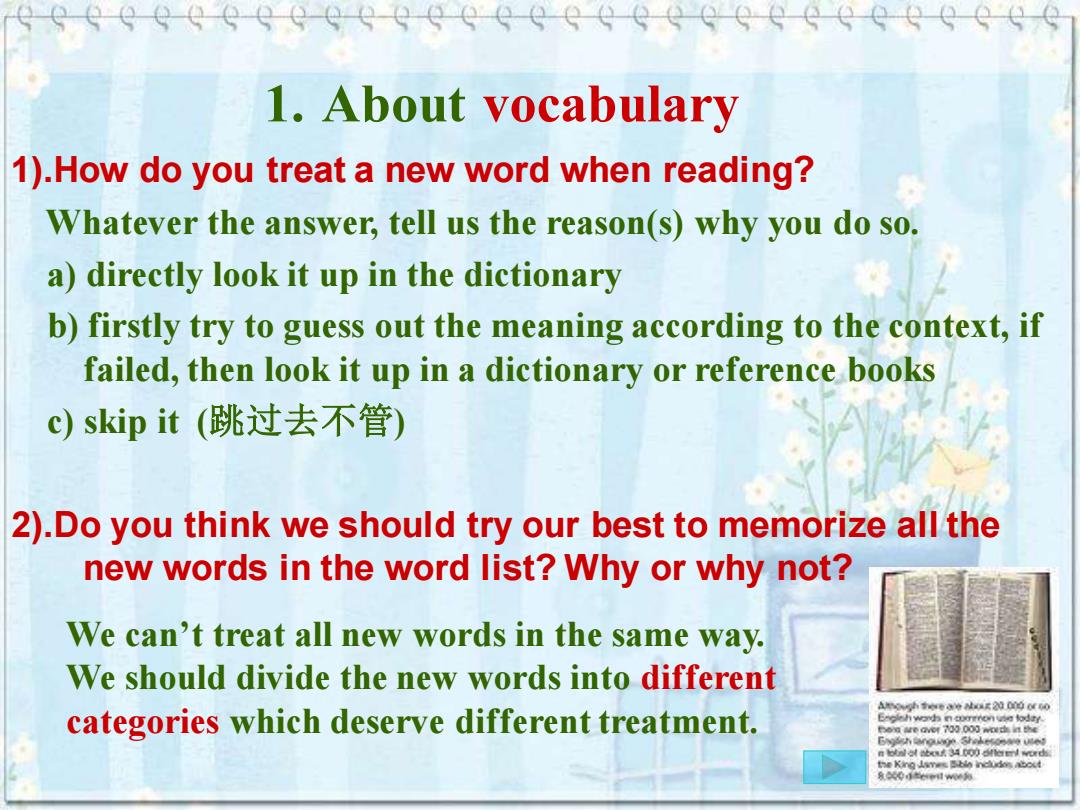
G-eeae-eee o 1.About vocabulary 1).How do you treat a new word when reading? Whatever the answer,tell us the reason(s)why you do so. a)directly look it up in the dictionary b)firstly try to guess out the meaning according to the context,if failed,then look it up in a dictionary or reference books c)skip it(跳过去不管) 2).Do you think we should try our best to memorize all the new words in the word list?Why or why not? We can't treat all new words in the same way. We should divide the new words into different categories which deserve different treatment
13 1. About vocabulary 1).How do you treat a new word when reading? Whatever the answer, tell us the reason(s) why you do so. a) directly look it up in the dictionary b) firstly try to guess out the meaning according to the context, if failed, then look it up in a dictionary or reference books c) skip it (跳过去不管) 2).Do you think we should try our best to memorize all the new words in the word list? Why or why not? We can’t treat all new words in the same way. We should divide the new words into different categories which deserve different treatment
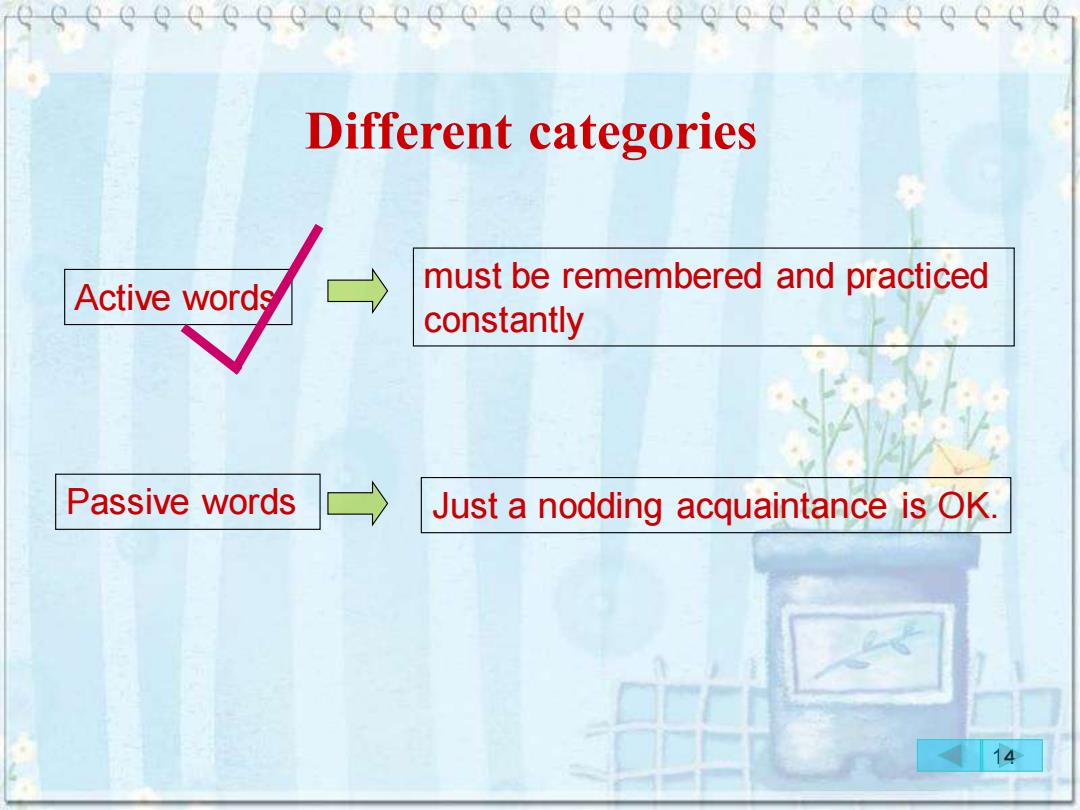
Different categories Active words must be remembered and practiced constantly Passive words Just a nodding acquaintance is OK
14 Different categories Active words Passive words must be remembered and practiced constantly Just a nodding acquaintance is OK
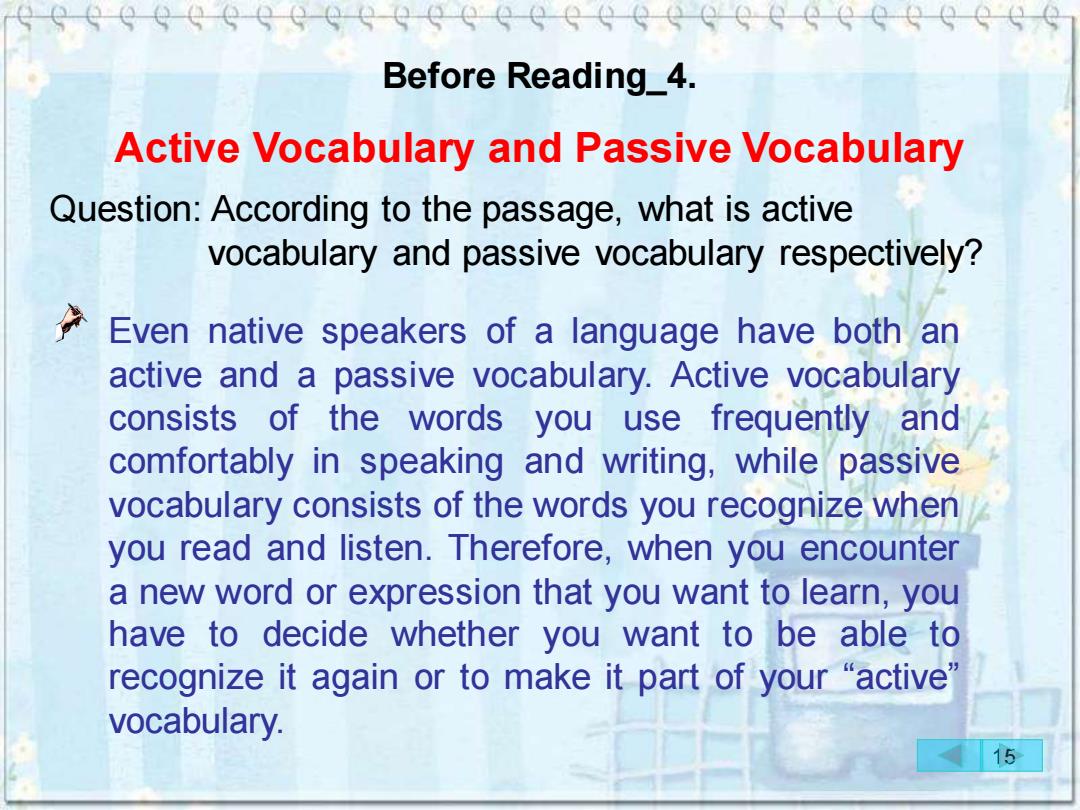
Before Reading_4. Active Vocabulary and Passive Vocabulary Question:According to the passage,what is active vocabulary and passive vocabulary respectively? Even native speakers of a language have both an active and a passive vocabulary.Active vocabulary consists of the words you use frequently and comfortably in speaking and writing,while passive vocabulary consists of the words you recognize when you read and listen.Therefore,when you encounter a new word or expression that you want to learn,you have to decide whether you want to be able to recognize it again or to make it part of your "active' vocabulary. 15
15 Before Reading_4. Even native speakers of a language have both an active and a passive vocabulary. Active vocabulary consists of the words you use frequently and comfortably in speaking and writing, while passive vocabulary consists of the words you recognize when you read and listen. Therefore, when you encounter a new word or expression that you want to learn, you have to decide whether you want to be able to recognize it again or to make it part of your “active” vocabulary. Active Vocabulary and Passive Vocabulary Question: According to the passage, what is active vocabulary and passive vocabulary respectively?